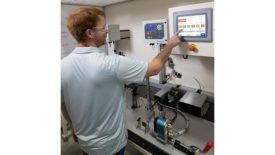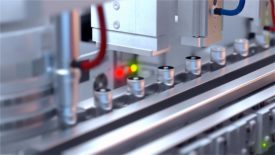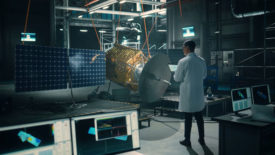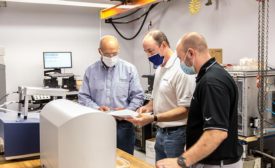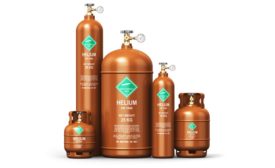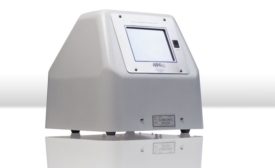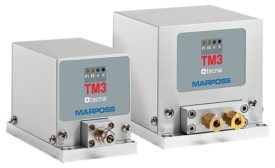Home » leak testing
Articles Tagged with ''leak testing''
Leak Testing
What is DP and how are manufacturers using this test method to achieve better resolution and quicker cycle times?
Read More
NDT | Leak Testing
Race to Mobility Sharpens Focus on Leak Testing for Li-ion Batteries and Hydrogen Fuel Cells
There are thousands of places where a battery pack or fuel cell pack can leak.
June 13, 2023
Aerospace | Leak Testing
The How’s and Why’s of Leak Testing
In the aerospace field, old leak testing methods are replaced to improve efficiency and minimize time on the ground.
July 8, 2022
Aerospace | Back 2 Basics
Leak Test 101: The Basics Rule, No Matter How Much Technology Evolves
These best practices are relevant whether the right leak test for your application is pressure/vacuum decay, mass flow, or tracer gas.
July 15, 2021
NDT | Leak Testing
E-Mobility Gives Automakers a Host of Leak Detection Challenges
EV battery cells, battery packs, electric motors and other systems modified for EV applications all require leak testing to assure both quality and safety.
June 9, 2021
Standardized Leak Testing for Lithium-Ion Battery Cells
It is Essential for Automakers.
January 6, 2021
NDT Leak Testing
Supply, Demand and Cost: Don’t Let That Helium Just Drift Away at the End of a Leak Test
How can you make the most of this increasingly precious commodity for your critical quality assurance needs?
August 5, 2020
NDT Leak Testing
Leak Testing Meets New Energy Storage Needs
Leak tightness is a major criterion for stable performance of a battery pack over the expected lifetime of an electrical vehicle.
August 5, 2020
Is Your Sealed Device Leak Testing Method All Wet?
Testing with air or gas offers a more reliable and nondestructive alternative.
June 9, 2020
Production Leak Testing: Where to Start?
In leak testing, there is no one method that works best for every situation.
March 15, 2020
Stay in the know with Quality’s comprehensive coverage of
the manufacturing and metrology industries.
eNewsletter | Website | eMagazine
JOIN TODAY!Copyright ©2024. All Rights Reserved BNP Media.
Design, CMS, Hosting & Web Development :: ePublishing
